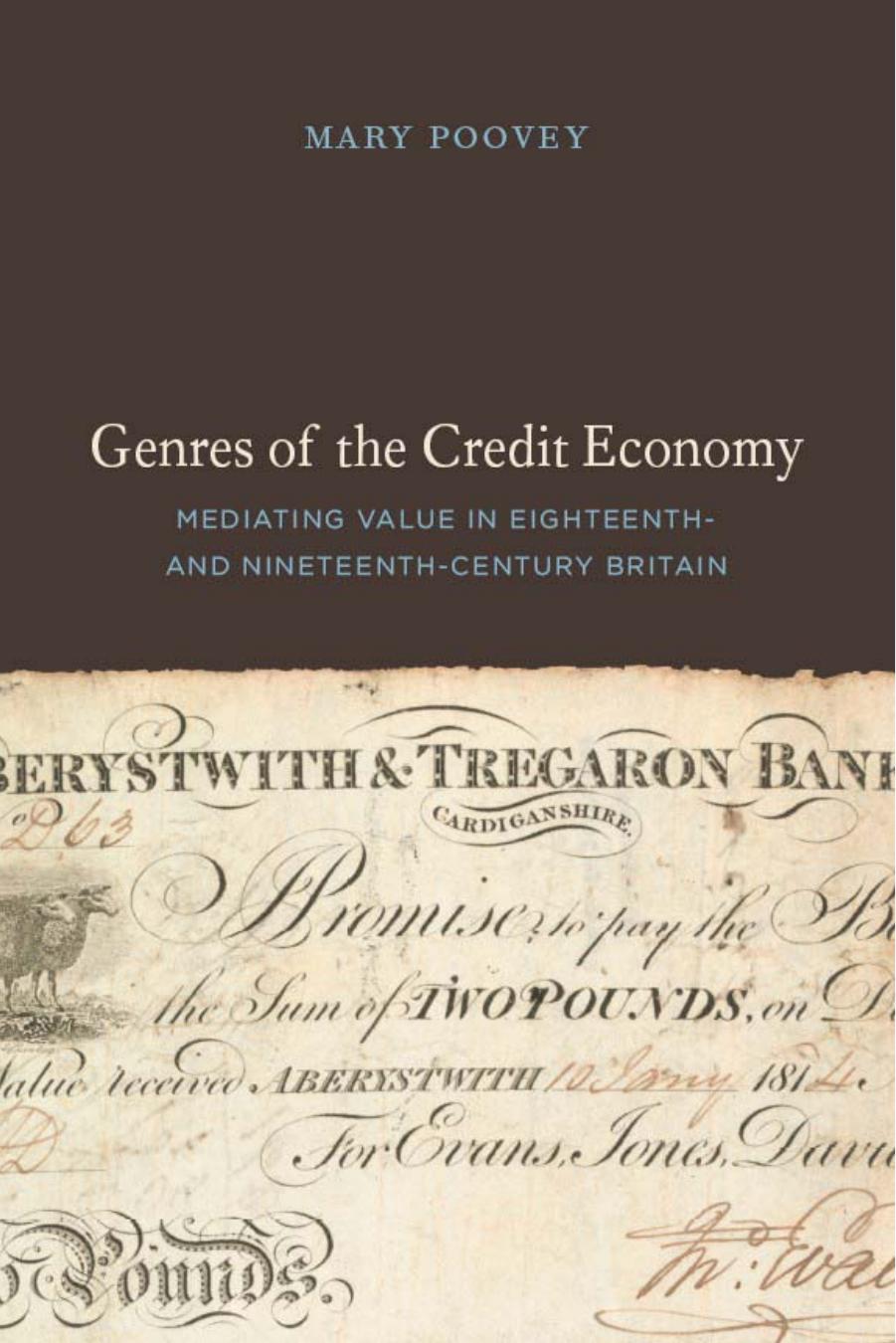Genres of the Credit Economy: Mediating Value in Eighteenth- and Nineteenth-Century Britain by Mary Poovey

Author:Mary Poovey [Poovey, Mary]
Language: eng
Format: epub, pdf
Published: 2008-11-15T17:17:00+00:00
Asa weekly, the Economist was not primarily intended to report the news, and readers would not have turned to it for an up-to-the-minute narrative of recent events. Unlike dailies, weeklies were expected to convey the considered opinion of writers who had achieved a bit of distance on immediate events, even if the distance was, as in this case, only a matter of days. Bagehot himself best captured the special function performed by the Economist: perhaps more than any comparable publication, it was a "beliefproducer" that created in its readers both the feeling that they belonged to a single (commercial) community and the conviction that the items the paper reported were critical to their everyday lives.49 As belief-producer extraordinaire, Bagehot considered it his responsibility to assuage his readers' anxieties rather than capitalize on their fears. Unlike reporters for the dailies, then, he used the events in May as an opportunity to teach his readers how to understand what they were experiencing as part of a larger, ultimately comprehensible, economic process. His hope was clearly that some degree of understanding would help quiet the panic and, thus, restore to regular operation the ordinary machinery of the credit system.
We can appreciate the tone of Bagehot's accounts by glancing at a few other reports of the panic. Even the ordinarily staid London Times registered the gravity of Overend and Gurney's closing by highlighting the shock it provoked. On 11 May, the day before the first of Bagehot's articles appeared, the Times proclaimed the closing of the bill-broking house "a national calamity" and warned that "unless prompt steps are taken the close of the week will be marked by disasters such as have never been equaled in our commercial history." Three days later, it implied that even this strong language was inadequate when its columnist assured readers that he had thus far used "delicacy and discretion" to report events.50 In between these two columns, on 12 May, with the first panic beginning to abate, the Times risked a brief description of the scene, the imagery of which would not have been out of place in the mob passages of Dickens's Barnaby Rudge: "About midday yesterday the tumult became a rout. The doors of the most reputable Banking-House were besieged, more perhaps by a mob actuated by the strange sympathy which makes and keeps a mob together than by creditors of the Bank, and throngs heaving and tumbling about Lombard Street made that narrow thoroughfare impassable."51 On 10 May, the morning that Overend and Gurney actually failed, even Bagehot had to acknowledge that panic was sweeping the City-although he did so privately, in a note hastily penned to Gladstone. "A complete collapse of credit in Lombard Street and a greater amount of anxiety than I have ever seen," he wrote.52
Download
Genres of the Credit Economy: Mediating Value in Eighteenth- and Nineteenth-Century Britain by Mary Poovey.pdf
This site does not store any files on its server. We only index and link to content provided by other sites. Please contact the content providers to delete copyright contents if any and email us, we'll remove relevant links or contents immediately.
The Compound Effect by Darren Hardy(8949)
Tools of Titans by Timothy Ferriss(8369)
Nudge - Improving Decisions about Health, Wealth, and Happiness by Thaler Sunstein(7694)
Win Bigly by Scott Adams(7184)
Deep Work by Cal Newport(7068)
Rich Dad Poor Dad by Robert T. Kiyosaki(6613)
Principles: Life and Work by Ray Dalio(6422)
Pioneering Portfolio Management by David F. Swensen(6289)
Digital Minimalism by Cal Newport;(5750)
The Barefoot Investor by Scott Pape(5743)
Grit by Angela Duckworth(5605)
The Slight Edge by Jeff Olson(5410)
Discipline Equals Freedom by Jocko Willink(5381)
The Motivation Myth by Jeff Haden(5206)
You Are a Badass at Making Money by Jen Sincero(4925)
The Four Tendencies by Gretchen Rubin(4595)
Eat That Frog! by Brian Tracy(4526)
The Confidence Code by Katty Kay(4251)
Bullshit Jobs by David Graeber(4179)
